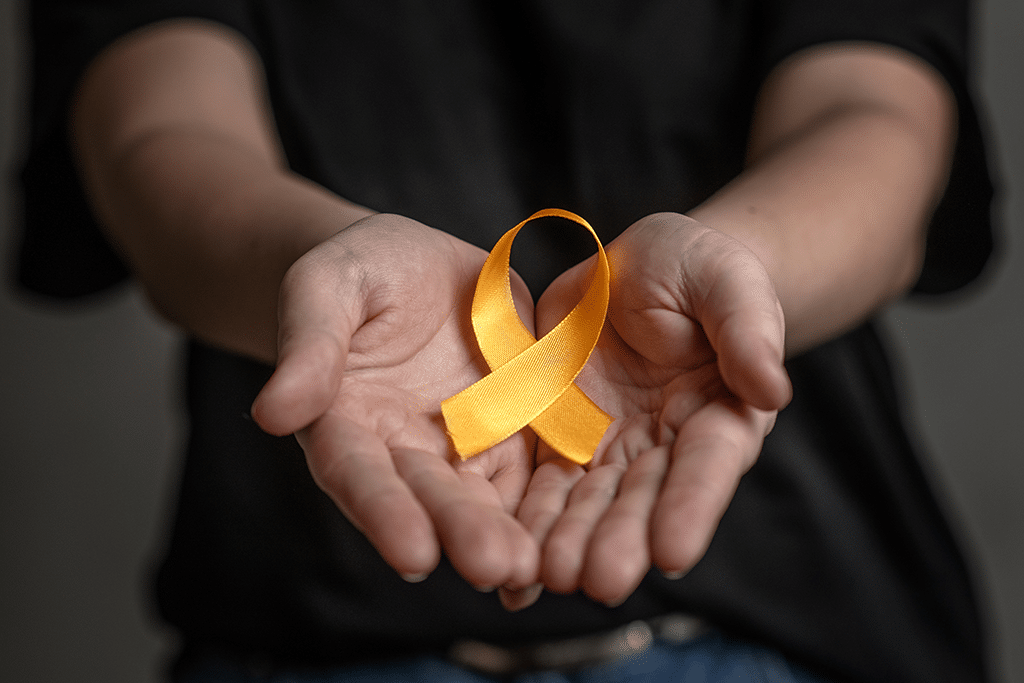If you are thinking about harming yourself or attempting suicide, tell someone who can help right away.
- Call 911 for emergency services.
- Go to the nearest hospital emergency room.
- Call or text 988 to connect with the 988 Suicide & Crisis Lifeline. The Lifeline provides 24-hour, confidential support to anyone in suicidal crisis or emotional distress. Support is also available via live chat . Para ayuda en español, llame al 988.
We know. Suicide is a hard topic to talk about. With September being Suicide Awareness Month, we wanted to remind everyone about the importance of having tough conversations about depression, mental illness, and suicide.
Society often stigmatizes mental illness. We’ve made great strides toward becoming more open and understanding of mental health issues. Still, we must continue to raise awareness about the causes and effects of suicide and encourage actions to prevent it.
While suicide may be uncomfortable and difficult to discuss, having open and honest conversations about depression, mental illness, and suicide can be critical to saving lives. In this blog post, we discuss the importance of having tough conversations about mental health and suicide and share some tips for starting and navigating these conversations.
Break the Stigma
One of the biggest obstacles to addressing the issue of mental health and suicide is the stigma surrounding it. Many people are afraid to talk about mental health challenges or seek help due to a fear of being judged.
However, by having honest conversations about depression and suicide, we can break down these barriers and work to eliminate the stigma. Encourage those around you to speak up and ask for help when they need it, and don’t be afraid to talk to others about your own experiences with mental illness.
Raise Awareness
Suicide is often a silent epidemic. When we talk openly about suicide, we can help people understand the warning signs, risk factors, and consequences associated with suicide.
Raising awareness and education can provide individuals with the tools they need to have supportive conversations about mental illness and suicide. They can learn to listen effectively, respond empathetically, and provide helpful resources. It also helps people recognize the importance of seeking professional help rather than relying on self-medication or isolation.
Encourage or Seek Help
People struggling with mental health may feel hopeless, alone, and helpless. By having conversations about mental health and suicide, we can encourage individuals to seek help before it’s too late. We can provide them with resources, support, and reassurance and let them know it’s okay to ask for help.
If you or someone you know is experiencing suicidal thoughts or struggling with mental illness, it’s important to seek help immediately. Many resources are available, including hotlines, therapy, and support groups. Remember that it’s never too late to ask for help, and there is always someone there to listen and provide support.
At Cornerstone, our mission is to help others recognize that they matter. You matter. Our professionals are trained to provide support when you need it most.
Recognize Warning Signs
Not everyone experiencing suicidal thoughts or ideation will exhibit warning signs. However, it’s important to recognize when warning signs do occur. Signs to watch for include:
1. Changes in behavior or mood
Changes in behavior may include acting differently than usual, withdrawing, or isolating from friends and family. Look for changes in their routine or daily activities, such as not caring for themselves, neglecting responsibilities, or giving away their possessions.
2. Verbal cues
People experiencing suicidal thoughts may communicate their intentions or express hopelessness or helplessness. They may say things like, “I can’t take it anymore,” “I wish I were dead,” or “Everyone would be better off without me.” These comments should be taken seriously and not dismissed as attention-seeking behavior.
3. Substance abuse
Using drugs or alcohol to cope with emotional pain or numbness is common among people struggling with mental health issues. Encourage the individual to seek help and avoid enabling behaviors that could worsen their condition.
4. Sudden changes in mood
Extreme mood swings (such as going from being very depressed to very happy) can indicate that someone is experiencing suicidal thoughts. Talk to the person and offer support and resources to help them cope with their emotions.
5. Withdrawing from social activities
People experiencing deep depression or suicidal thoughts may withdraw from activities or social events that were enjoyable or important to them. Reach out and offer support by being present or helping them find professional help.
6. Changes in eating habits
Sudden changes in appetite or eating habits may indicate someone is suffering from emotional distress. They may eat less or more frequently than usual or have unexplained weight gain/loss. Eating disorders and suicide risk can have a strong correlation, so addressing these changes is essential.
This is not a complete list of suicidal behavior or actions. Pay attention to yourself or your loved one, and don’t hesitate to reach out or ask for help. Talking openly and honestly about mental health and suicide can help us identify these warning signs and intervene.
Create a Support System
Strong support systems reassure people that they are not alone. Family, friends, mental health professionals, and society as a whole can do their part to encourage tough conversations. When we work together, we can build a supportive community that is there for each other in need. We can create safe spaces where people feel comfortable sharing their struggles and getting support.
Please remember, though, that you cannot carry all the emotional weight of others.
Being supportive does not mean you have to be the sole solution for other people’s emotional distress. Be a friend when needed, but also encourage professional health when you don’t feel qualified to handle the seriousness of the situation. Prioritize your mental well-being, too.
Promote Healing
Open communication promotes healing and recovery. People experiencing suicidal thoughts often feel trapped in their feelings. Having a space to share these thoughts can prevent isolation and a sense of hopelessness. Conversations around suicide allow people to receive and give support, build resilience, and develop healthy coping skills.
Conclusion
Suicide is a complex issue, and there are no easy solutions. As Suicide Awareness Month nears the end, it’s important to remember that the tough conversations about suicide and mental health need to continue throughout the year. Together, we can work to create a world where mental health is taken seriously and every life is valued.
Are you or someone you know struggling with depression or mental illness? We can help. We will help. Our professional staff is ready to offer the help and support you need to heal, manage symptoms, and move forward. Please request an appointment or contact us today.
If you are thinking about harming yourself or attempting suicide, tell someone who can help right away.
- Call 911 for emergency services.
- Go to the nearest hospital emergency room.
- Call or text 988 to connect with the 988 Suicide & Crisis Lifeline. The Lifeline provides 24-hour, confidential support to anyone in suicidal crisis or emotional distress. Support is also available via live chat . Para ayuda en español, llame al 988.


